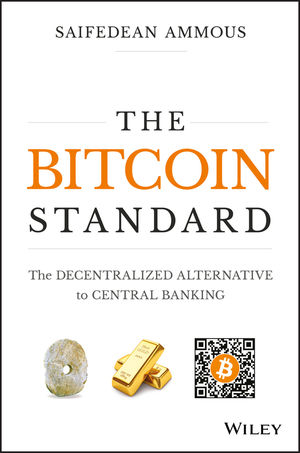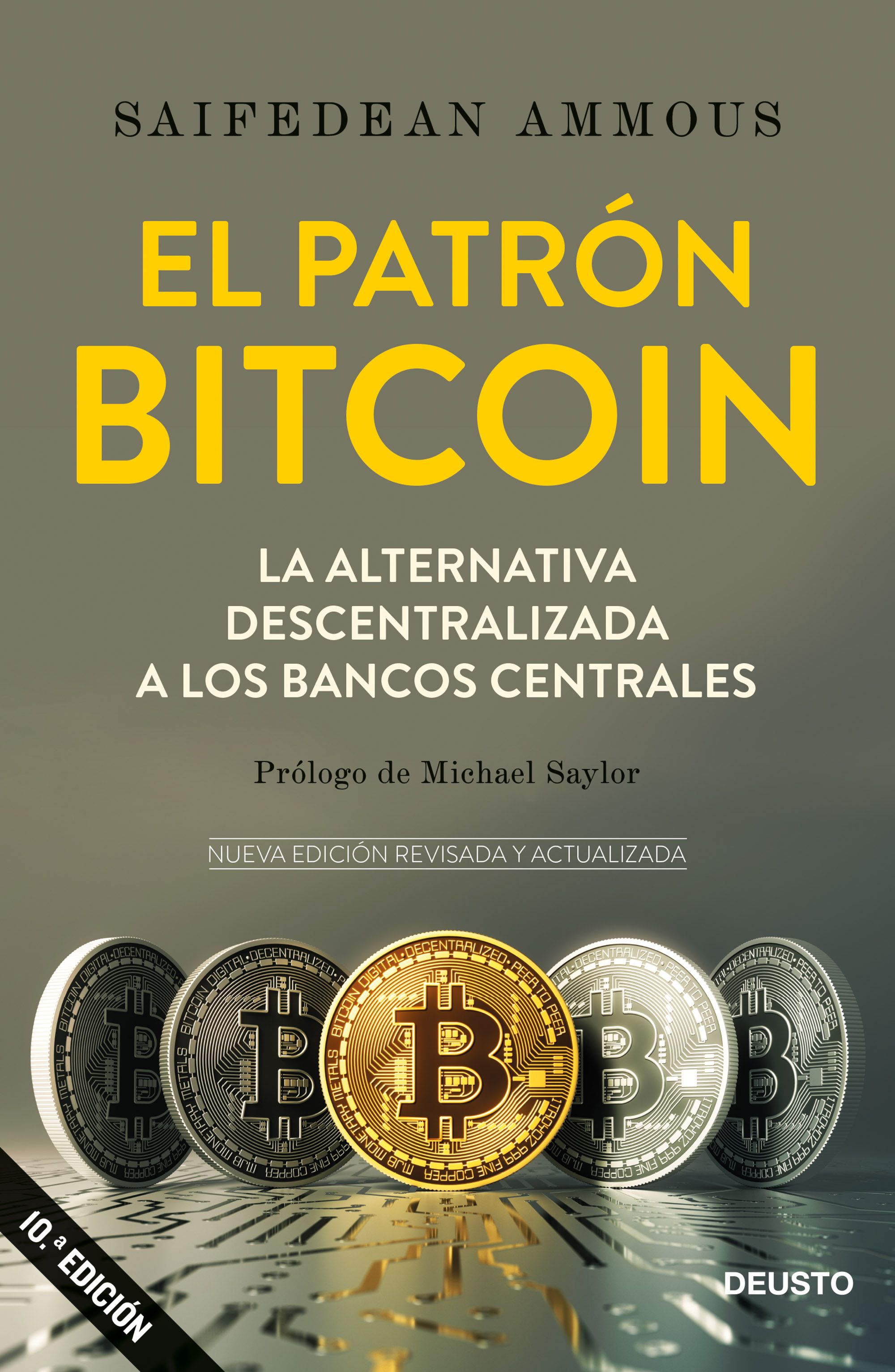The Bitcoin Standard
the decentralized lternative to central banking
- ISBN: 9781119473862
- Editorial: John Wiley & Sons Limited
- Fecha de la edición: 2018
- Lugar de la edición: Hoboken. Estados Unidos de Norteamérica
- Encuadernación: Cartoné
- Medidas: 22 cm
- Nº Pág.: 286
- Idiomas: Inglés

When a pseudonymous programmer introduced “a new electronic cash system that’s fully peer-to-peer, with no trusted third party” to a small online mailing list in 2008, very few paid attention. Ten years later, and against all odds, this upstart autonomous decentralized software offers an unstoppable and globally-accessible hard money alternative to modern central banks. The Bitcoin Standard analyzes the historical context to the rise of Bitcoin, the economic properties that have allowed it to grow quickly, and its likely economic, political, and social implications.
While Bitcoin is a new invention of the digital age, the problem it purports to solve is as old as human society itself: transferring value across time and space. Ammous takes the reader on an engaging journey through the history of technologies performing the functions of money, from primitive systems of trading limestones and seashells, to metals, coins, the gold standard, and modern government debt. Exploring what gave these technologies their monetary role, and how most lost it, provides the reader with a good idea of what makes for sound money, and sets the stage for an economic discussion of its consequences for individual and societal future-orientation, capital accumulation, trade, peace, culture, and art. Compellingly, Ammous shows that it is no coincidence that the loftiest achievements of humanity have come in societies enjoying the benefits of sound monetary regimes, nor is it coincidental that monetary collapse has usually accompanied civilizational collapse.
With this background in place, the book moves on to explain the operation of Bitcoin in a functional and intuitive way. Bitcoin is a decentralized, distributed piece of software that converts electricity and processing power into indisputably accurate records, thus allowing its users to utilize the Internet to perform the traditional functions of money without having to rely on, or trust, any authorities or infrastructure in the physical world. Bitcoin is thus best understood as the first successfully implemented form of digital cash and digital hard money. With an automated and perfectly predictable monetary policy, and the ability to perform final settlement of large sums across the world in a matter of minutes, Bitcoin’s real competitive edge might just be as a store of value and network for final settlement of large payments—a digital form of gold with a built-in settlement infrastructure.
Ammous’ firm grasp of the technological possibilities as well as the historical realities of monetary evolution provides for a fascinating exploration of the ramifications of voluntary free market money. As it challenges the most sacred of government monopolies, Bitcoin shifts the pendulum of sovereignty away from governments in favor of individuals, offering us the tantalizing possibility of a world where money is fully extricated from politics and unrestrained by borders.
The final chapter of the book explores some of the most common questions surrounding Bitcoin: Is Bitcoin mining a waste of energy? Is Bitcoin for criminals? Who controls Bitcoin, and can they change it if they please? How can Bitcoin be killed? And what to make of all the thousands of Bitcoin knock-offs, and the many supposed applications of Bitcoin’s ‘blockchain technology’? The Bitcoin Standard is the essential resource for a clear understanding of the rise of the Internet’s decentralized, apolitical, free-market alternative to national central banks.
Chapter 1: Money 10
Chapter 2: Primitive Moneys 18
Chapter 3: Monetary Metals 23
Why Gold? 24
Roman Golden Age and Decline 30
Byzantium and the Bezant 32
The Renaissance 33
La Belle Époque 38
Chapter 4: Government Money 43
Monetary Nationalism and the End of the Free World 45
The Interwar Era 49
World War II and Bretton Woods 54
Government money’s track record 60
Chapter 5: Digital Money 72
Bitcoin as Digital Cash 73
Supply, Value and Transactions 81
Appendix to Chapter 5 94
Chapter 6: Sound Money and Time Preference 97
Monetary Inflation 103
Saving and Capital Accumulation 112
Innovations: ‘Zero to One’ vs ‘One to Many’ 117
Artistic Flourishing 120
Chapter 7: Money as Capitalism’s Information System 126
Capital Market Socialism 129
Business Cycles and Financial Crises 133
Sound Basis for Trade 144
Chapter 8: Sound Money and Individual Freedom 150
Should Government Manage the Money Supply? 150
Unsound Money and Perpetual War 158
Limited vs Omnipotent Government 161
The Bezzle 166
Chapter 9: What Is Bitcoin Good For? 177
Store of Value 177
Individual Sovereignty 183
International and Online Settlement 186
Global Unit of Account 191
Chapter 10: Bitcoin Questions 196
Mining and Proof-of-work 196
Out of Control: Why nobody can change Bitcoin 200
Antifragility 207
Can Bitcoin Scale? 208
Is Bitcoin For Criminals? 215
How to Kill Bitcoin: A Beginners’ Guide 217
Altcoins 222
Blockchain Technology 230
References 244







